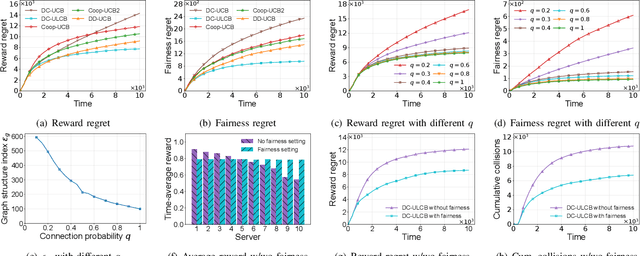Zhigang Yu
When Graph meets Multimodal: Benchmarking on Multimodal Attributed Graphs Learning
Oct 11, 2024



Abstract:Multimodal attributed graphs (MAGs) are prevalent in various real-world scenarios and generally contain two kinds of knowledge: (a) Attribute knowledge is mainly supported by the attributes of different modalities contained in nodes (entities) themselves, such as texts and images. (b) Topology knowledge, on the other hand, is provided by the complex interactions posed between nodes. The cornerstone of MAG representation learning lies in the seamless integration of multimodal attributes and topology. Recent advancements in Pre-trained Language/Vision models (PLMs/PVMs) and Graph neural networks (GNNs) have facilitated effective learning on MAGs, garnering increased research interest. However, the absence of meaningful benchmark datasets and standardized evaluation procedures for MAG representation learning has impeded progress in this field. In this paper, we propose Multimodal Attribute Graph Benchmark (MAGB)}, a comprehensive and diverse collection of challenging benchmark datasets for MAGs. The MAGB datasets are notably large in scale and encompass a wide range of domains, spanning from e-commerce networks to social networks. In addition to the brand-new datasets, we conduct extensive benchmark experiments over MAGB with various learning paradigms, ranging from GNN-based and PLM-based methods, to explore the necessity and feasibility of integrating multimodal attributes and graph topology. In a nutshell, we provide an overview of the MAG datasets, standardized evaluation procedures, and present baseline experiments. The entire MAGB project is publicly accessible at https://github.com/sktsherlock/ATG.
Fair Distributed Cooperative Bandit Learning on Networks for Intelligent Internet of Things Systems (Technical Report)
Mar 18, 2024
Abstract:In intelligent Internet of Things (IoT) systems, edge servers within a network exchange information with their neighbors and collect data from sensors to complete delivered tasks. In this paper, we propose a multiplayer multi-armed bandit model for intelligent IoT systems to facilitate data collection and incorporate fairness considerations. In our model, we establish an effective communication protocol that helps servers cooperate with their neighbors. Then we design a distributed cooperative bandit algorithm, DC-ULCB, enabling servers to collaboratively select sensors to maximize data rates while maintaining fairness in their choices. We conduct an analysis of the reward regret and fairness regret of DC-ULCB, and prove that both regrets have logarithmic instance-dependent upper bounds. Additionally, through extensive simulations, we validate that DC-ULCB outperforms existing algorithms in maximizing reward and ensuring fairness.
 Add to Chrome
Add to Chrome Add to Firefox
Add to Firefox Add to Edge
Add to Edge